1.Input Voltage for DC/DC converter
- (1) When using AC/DC power supply
- (2) When using AC voltage source
- (3) When using a Battery-operated Device
2.Using DC/DC converter
- (1) When a Floating Mechanism is Required for Output Circuit
- (2) To draw a Reverse Polarity Output
- (3) To provide a negative voltage to -Vin by using +Vin side of the converter as GND potential (0V)
- (4) To draw the Sum of Input Voltage and Plus Output Voltage
3.Using a Dual Output Type
1. Input Voltage for DC/DC converter
(1) When using AC/DC power supply

(2) When using AC voltage source
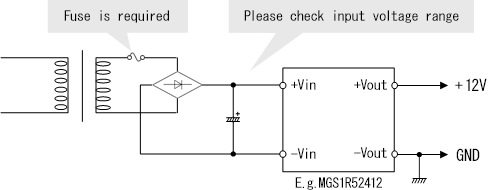
(3) When using a Battery-operated Device
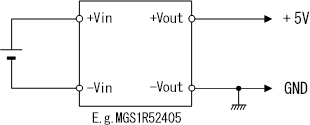
2. Using DC/DC converter
(1) When a Floating Mechanism is Required for Output Circuit
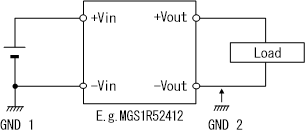
(2) To draw a Reverse Polarity Output

(3) To provide a negative voltage to -Vin by using +Vin side of the converter as GND potential (0V)
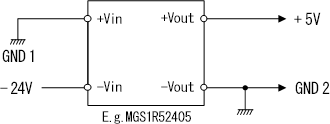
(4) To draw the Sum of Input Voltage and Plus Output Voltage
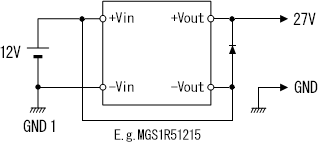
- Output current shall be less than rated current.
- Total Output voltage regulation is sum of input voltage regulation and output voltage regulation.
- When output voltage is shorted, huge current would flow depending on input voltage source.
3. Using Dual Output Type
(1) Using dual output type
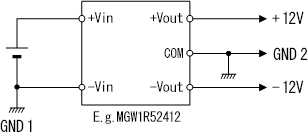
(2) Using +/-12V as 24V output
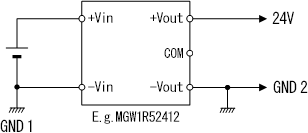
(3) Using +/-12V as multi output +12V and 24V
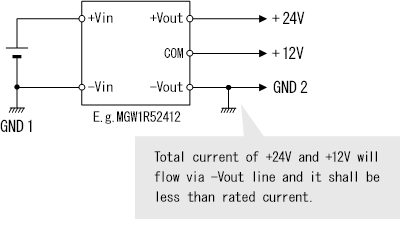
(4) Using as 48V output
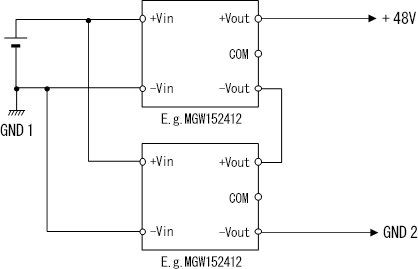
Technical Product-related Inquires
e-mail:support@cosel.co.jp
